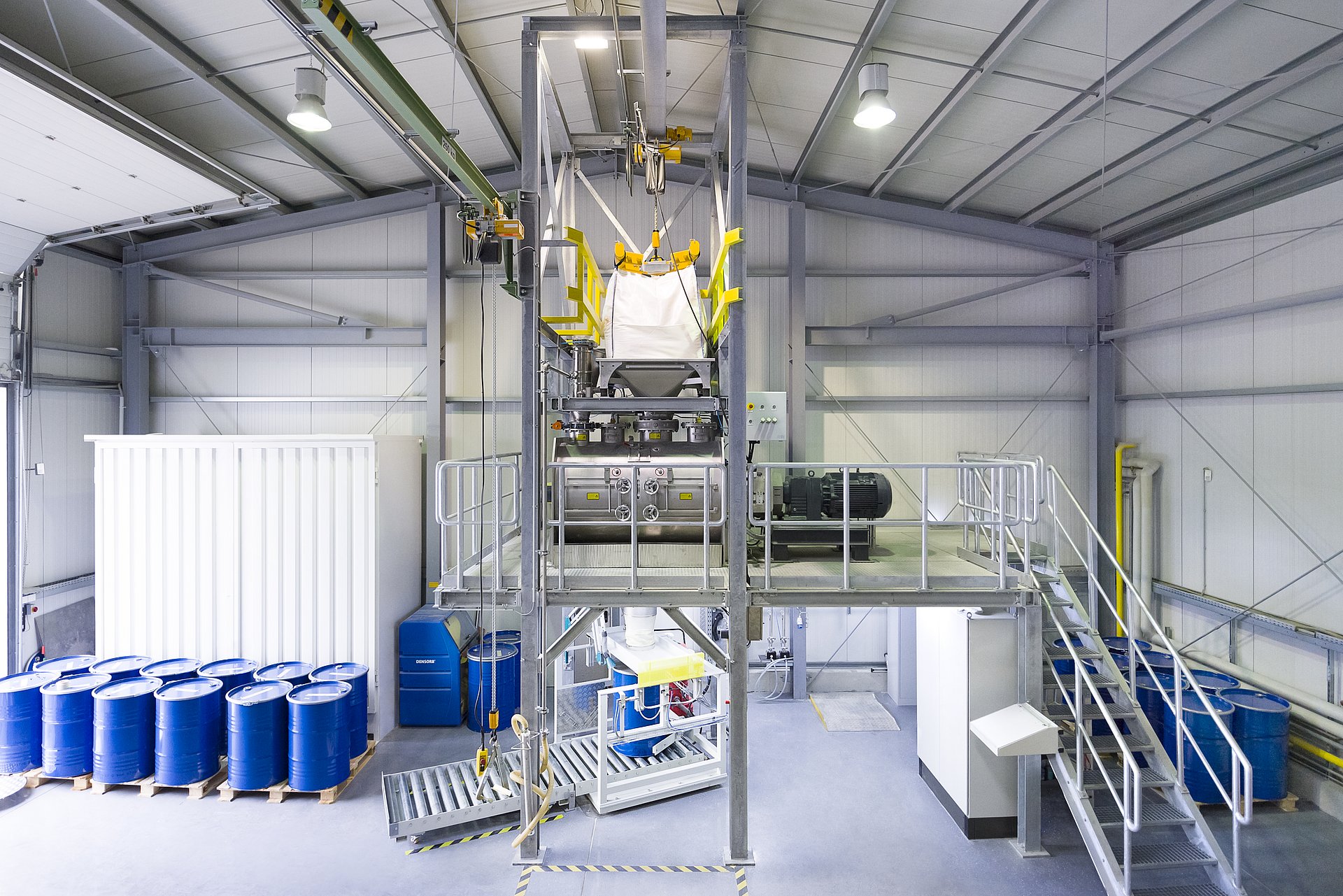Experience in Mixing
IBU-tec has gained experience with a wide range of mixing processes and materials in the course of countless customer projects with a wide variety of requirements:
- Mixing of solids
- Mixing of solids with liquids (e.g. also incipient wetness impregnation)
- Production of solutions and suspensions. If necessary, these can be heated.
- Granulation
- Mixing with simultaneous drying
Opportunities at IBU-tec
We have a range of flexible mixers available for mixing our customer materials, which cover customer requirements from the kilogram to the tonne range depending on the project: from trials for process development on a laboratory scale to sample quantities in pilot production in the range from 20 kg to 1000 kg to industrial production of many tons. Continuous and batch mixtures can be integrated into the process sequence. Batch processing allows us to make flexible adjustments to the process flow or raw material composition if necessary. Another advantage is the traceability of individual batches for quality control.
For example, we have experience in moistening (coating) or impregnating (incipient wetness impregnation) solids with a liquid phase to produce wet powders, which can then be thermally treated. Like the mixing of solids in order to achieve a homogeneous distribution of the individual phases, the production of suspensions in stirred tanks of different sizes is also one of the processes that we carry out on behalf of customers, usually in the context of thermal treatment in a rotary kiln or pulsation reactor.
There are many reasons why mixed treatment is necessary at IBU-tec, such as the application of catalytically active components to a carrier material or the production of mixed oxides, in which the individual components must be present in certain proportions.
Mixing Equipment at IBU-tec
You will find mixing equipment of all sizes at IBU-tec to cover laboratory scale developments, pilot trials and industrial scale productions, with most of our units being Lödige plowshare mixers or Eirich intensive mixers. Click here for a detailed list.
Many of our plowshare mixers can be extended in their range of applications through the use of cutterheads. In order to implement your requirements flexibly, different nozzles can be used to optimally introduce liquid phases into the mixer for your process.
Definition of Mixing in Process Technology
In mixing technology, at least 2 different components must be mixed together and the proportions distributed over the entire material homogenized or brought into a desired ratio. The individual components can represent different substances or consist only of different crystal phases or agglomerate sizes of the same material system. The resulting mixture can become a new substance under suitably defined conditions.
Mixing in batches or charges is of the greatest importance in test operations or the production of pilot quantities. However, some processes may also require batch mixing regardless of the scale of production, where the quality of the mixture and quality control can be better ensured.
At IBU-tec, we only use active mixers in which the energy required for the mixing process is supplied in a targeted manner. Examples include the Eirich intensive mixers and Lödige plowshare mixers, which we often use and which achieve rapid and intensive mixing of the raw materials. For the sake of completeness, passive mixing processes should also be mentioned, in which the energy required for mixing is achieved by the geometry of the mixer and the introduction of the mix without the need for external energy, for example in a mixing silo or conical mixer.

